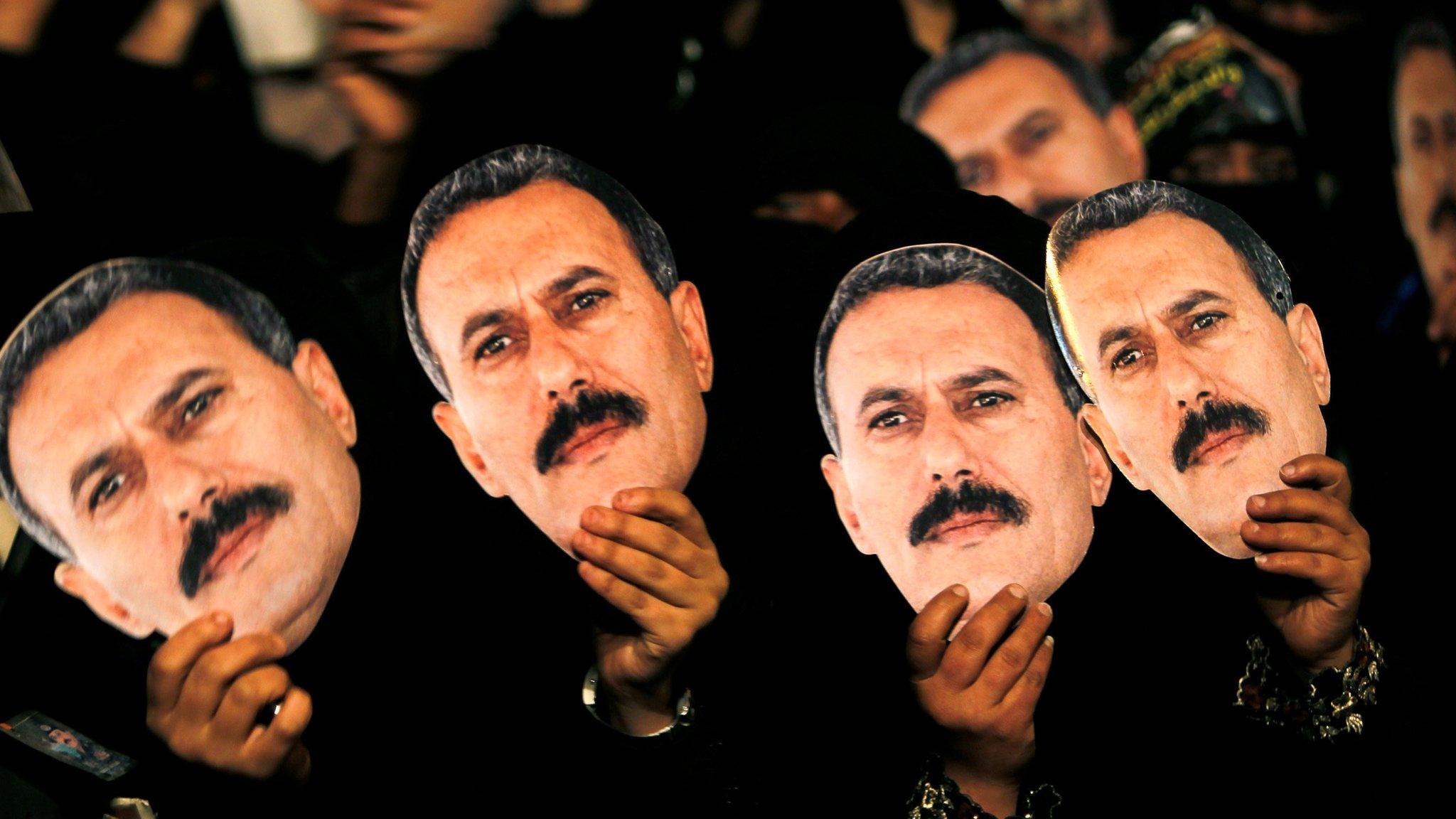Children and war: 'More than ever' living near conflict
- Published
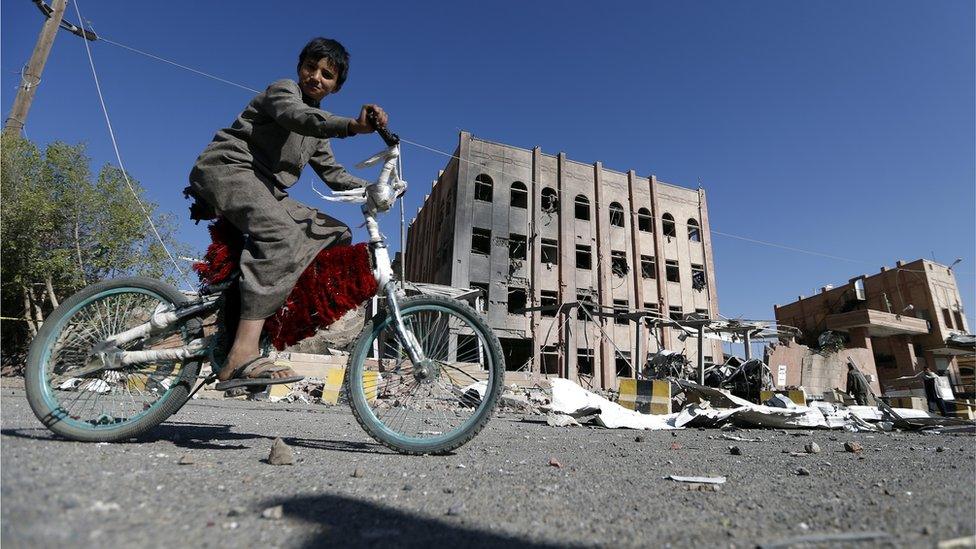
More children than ever before are living in areas affected by conflict, a charity says.
At least 357 million children live within 50km (31 miles) of an armed conflict and face the danger of being killed each day.
Save The Children says that's one in six children on the planet who are vulnerable to the United Nation's "six grave violations" to their rights.
They include killing and maiming - and recruitment or use of child soldiers.
Born into war
Anas is trying to raise his child in Yemen and faces struggles providing her with an education and basic safety.
Children in Yemen "don't want to go to classes because they're afraid of being killed," Anas says.
The 30-year-old lives in Sanaa, Yemen's capital, which is controlled by the Houthi rebels being pursued by Saudi Arabia.
His 20-month-old daughter has only lived in a Yemen at war, and Anas is constantly worried about her survival.
Allow X content?
This article contains content provided by X. We ask for your permission before anything is loaded, as they may be using cookies and other technologies. You may want to read X’s cookie policy, external and privacy policy, external before accepting. To view this content choose ‘accept and continue’.
"When my wife was pregnant I was all the time worried that I would lose that baby.
"I remember some incidents when air strikes happened, she just shook. She was in immense fear. I couldn't help but hold her and run to the stairs because it's the safest place at home," he says.
Yemen is the fourth most dangerous country in the world for children after Syria, Afghanistan and Somalia, according to Save the Children.
Yemen - one of the Arab world's poorest countries - is in the middle of a civil war.
More than 9,245 people have been killed and 52,800 injured since March 2015, the UN says.
Anas says a mixture of air strikes, land mines and conflict on the ground put Yemeni children in danger.
The war has put Yemen on the brink of famine.
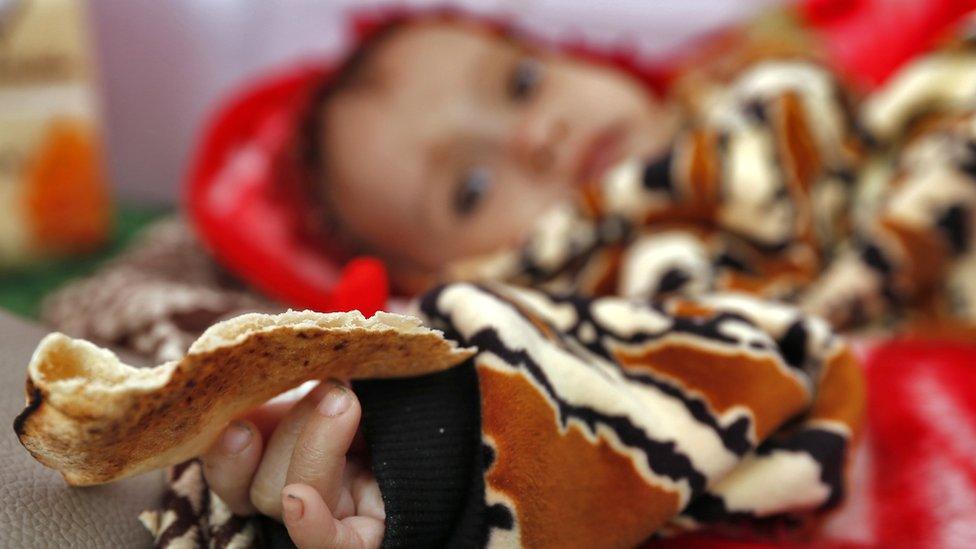
Almost 375 million children in the world live within 50km of a conflict zone
A single fish
Anas, who works for Save the Children, described seeing large families relying on a single fish "the size of your palm" to survive each day.
The charity says there has been a 75% increase in the number of children living near conflict zones since 1991.
Its report says that since 2010 the number of United Nations-verified cases of children being killed or maimed has risen almost 300%.
The charity says one in six children globally are facing violations of their rights including:
killing and maiming
recruitment or use of children as soldiers
sexual violence
abduction
attacks on schools and hospitals
denial of humanitarian assistance
'I remember fear, sadness'
Denis, who's nine years old and going under a false name, was injured in an attack on his home in Ukraine when he was just six.
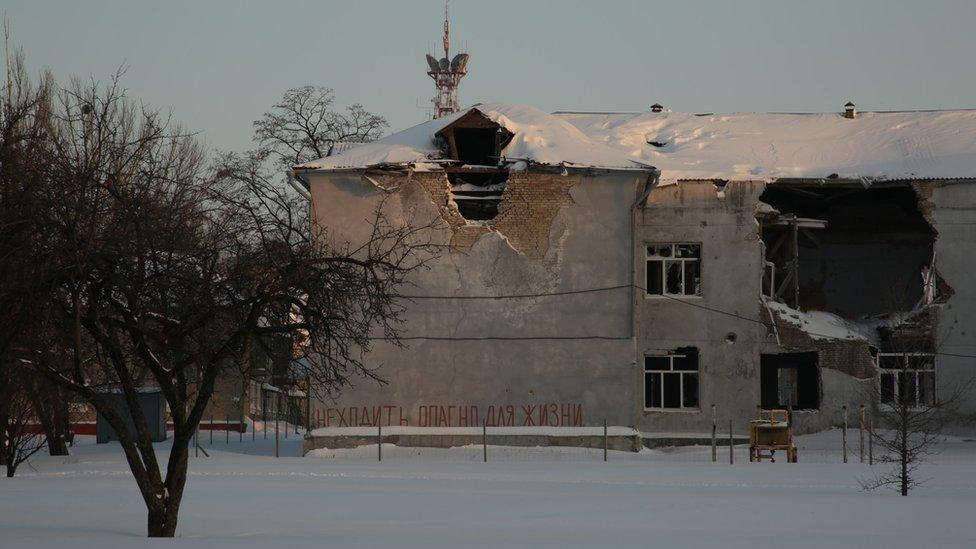
Over 10,000 people have been killed and 1.7 million displaced since conflict began in Ukraine four years ago
His home was completely destroyed and he was critically injured by shrapnel flying through the air - the remnants of which are still inside his body.
One piece of metal lodged in his skull and the other, which hit him in the arm, has settled in his shoulder, with doctors afraid he'll lose the use of that limb if they operate.
"I remember fear, sadness," Denis says of the attack.
"When I lost consciousness, I saw a dream, where there was a shelling, many casualties, and many wounded children who got under the shelling.
"Some children had their legs torn off, because they stepped on the mines. Then the ambulance arrived and rescued them."
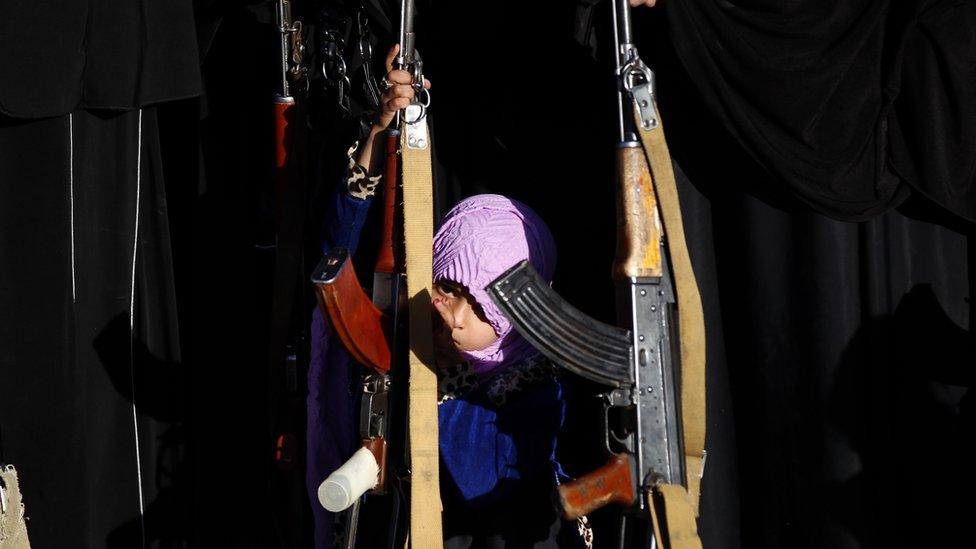
A Yemeni girl holding a rifle at a meeting of women loyal to the Houthi rebels in Sanaa (file photo)
'You are paying the price'
Anas worries about the psychological impact being born into a war will have on his young daughter.
And his niece, who is almost three years old, is asking questions he's struggling to answer.
"She asks questions like 'What is this big boom?', 'Why are they doing this to us?', 'Who's doing it?'
"She asks very basic questions and it's very difficult to explain to her that this is war and you are paying the price."
Save the Children's report in collaboration with Peace Research Institute Oslo comes ahead of the Munich Security Conference on 16 February.
Syria, Yemen and other conflicts are expected to be discussed there.
Listen to Newsbeat live at 12:45 and 17:45 every weekday on BBC Radio 1 and 1Xtra - if you miss us you can listen back here
- Published23 August 2017
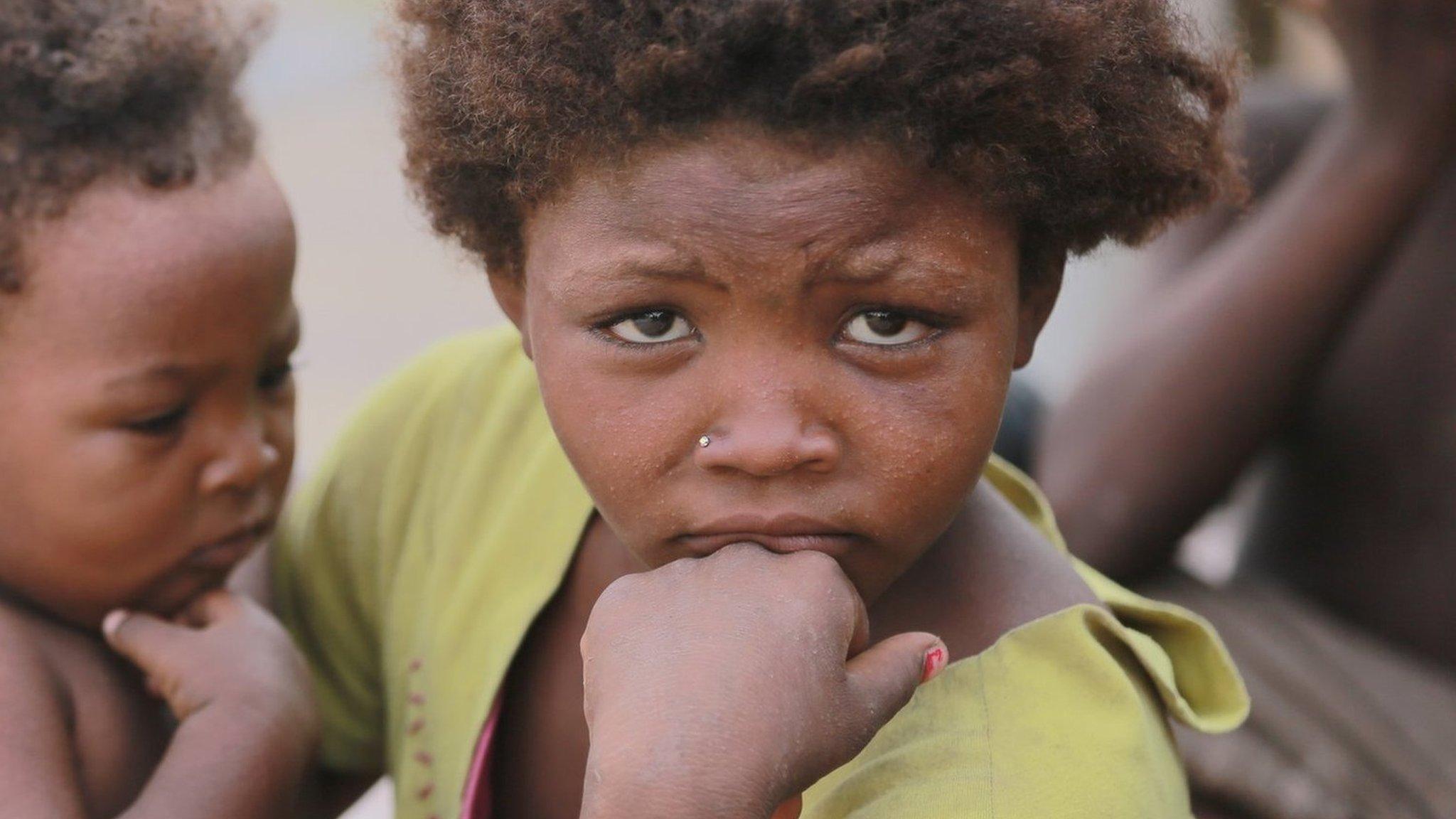
- Published12 October 2016
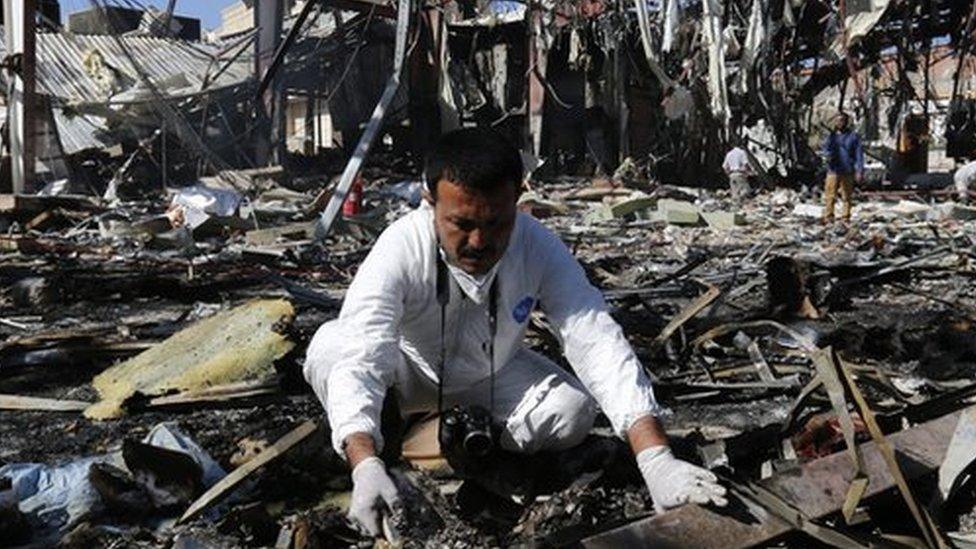
- Published4 December 2017
